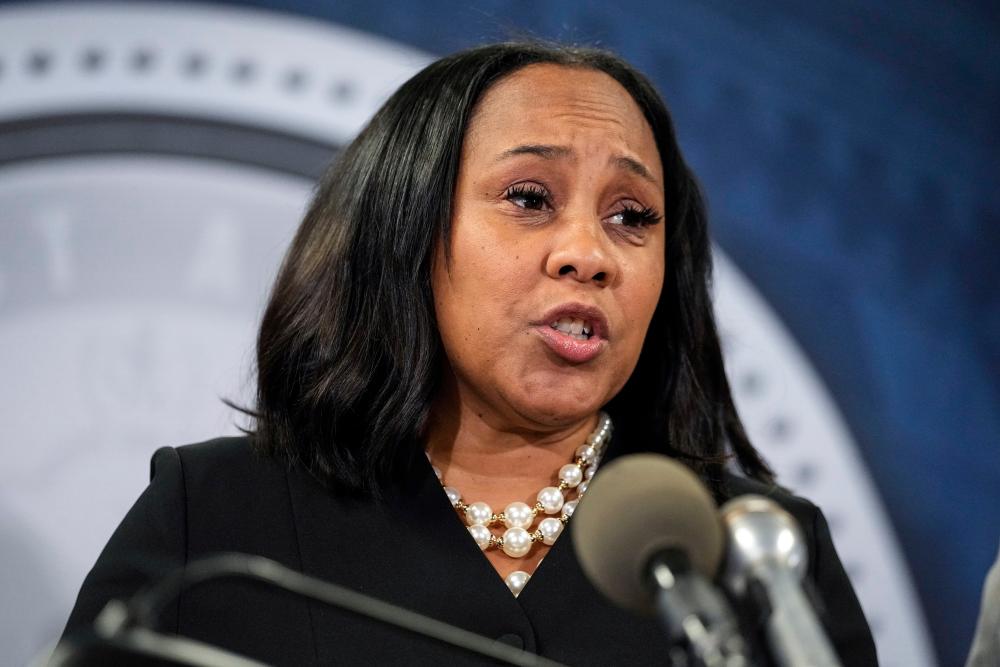The ongoing legal battle involving Fulton County District Attorney Fani Willis underscores a significant intersection between state politics and high-profile legal proceedings, particularly in relation to the prosecution of Donald Trump for election interference. Willis, who created a controversial stir in conservative circles by bringing charges against Trump, now faces scrutiny from Republican legislators in Georgia who are vocally unhappy with her legal strategies and perceived political alignment. Recently, her office found itself embroiled in subpoena disputes initiated by a state senate committee demanding her testimony and information concerning her professional dealings with Nathan Wade, a former special prosecutor who also had a personal relationship with her. The implications of these inquiries are substantial, particularly as they pertain to the ongoing Trump case and the unfolding dynamics between state lawmakers and judicial authorities.
In the latest courtroom developments, Willis’s stance against the subpoenas has gained significant attention. She has consistently rejected demands from the Senate special committee, arguing that the subpoenas lack legitimacy and violate the spirit of the state’s Open Records Act. While the state appeals court has yet to decide on key motions, including a bid by Trump for Willis’s recusal due to alleged conflicts of interest relating to her relationship with Wade, the ongoing uncertainty surrounding these legal battles continues to fuel speculation about the Trump election interference case’s trajectory. The stakes remain high as Willis’s prosecution is the only active judicial pursuit against Trump, apart from several co-defendants also entangled in the case.
The political arena has ingrained anger toward Willis from various factions within the Republican party, infringing on her office’s operations and challenging her authority in a glaring spotlight of partisan conflict. Opposition has not only emerged from state lawmakers but also through legal maneuvers such as the lawsuit filed by Judicial Watch, which aims to obtain records of her communications with federal officials linked to the Trump investigations. Such cases could lay bare any potential coordination between local and federal prosecutorial entities, raising constitutional questions and creating the environment for legislative pushback, such as efforts to curtail district attorney powers or modify funding structures.
As tension escalates, Willis has characterized the actions by her political adversaries as harassment, likening them to legislative initiatives aimed at undermining local prosecutors. Her arguments hinge on interpretations of the Georgia constitution, emphasizing that subpoenas should only be issued through a collaborative effort of both chambers of the state legislature—the House and Senate—rather than by one chamber acting independently. This assertion underscores a deeper legal debate over the extent and manner in which legislative oversight is performed. The conflict essentially becomes a test of whether state legislators can conduct investigations that may encroach upon the prosecutorial duties after accusing Willis of overstepping established legal processes.
Legislators from the Senate committee argue that the investigation is rooted in a need to explore potential inadequacies in existing state laws about the conduct of district attorneys and the mechanisms of hiring special assistant prosecutors. Their inquiry suggests an overarching intent to ensure accountability within the prosecutorial framework, thus presenting an apparent legal grounds for pushing back against Willis amid the politically charged environment of the Trump-related case. Citing concerns for public trust and legislative responsibility, the lawmakers believe examining Willis’s interactions and protocols could prompt necessary reforms in state law concerning district attorney operations.
As the legal wrangling continues, the core issue remains the judicial separation of powers against the backdrop of a politically motivated investigation. No Georgian court has directly ruled on the boundaries of legislative subpoena power, leaving open questions about how the interplay of governmental authority operates within the context. The outcomes of these proceedings will not only shape the future of Willis’s prosecution efforts but could also evoke a precedent-setting response in how state legislatures can interact with their judicial counterparts, thereby potentially reshaping institutional boundaries for prosecutor roles statewide. The tug-of-war between accountability and political strategy mirrors a broader national trend where measures against perceived judicial overreach take shape as a mechanism for political retaliation.

